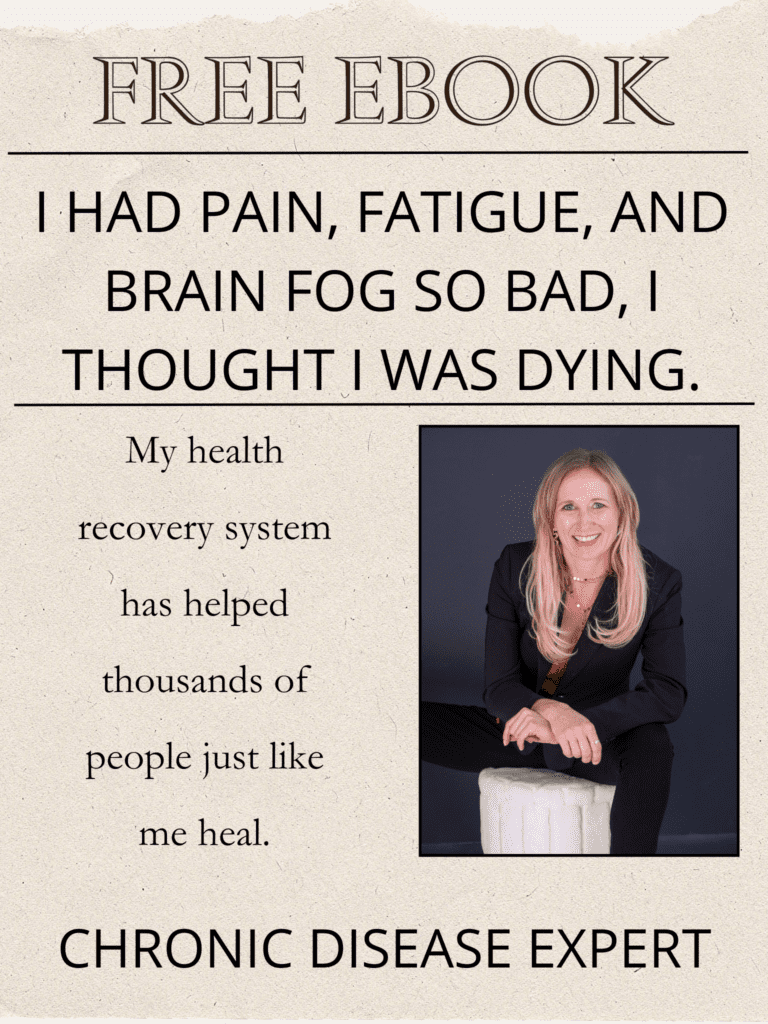

by Dr Diane Mueller – Ever found yourself rereading an email you were sure you’d nailed, only to spot glaring mistakes? Or maybe you’ve zoned out in meetings, unable to keep your focus sharp. If these scenarios sound familiar, you’re likely grappling with brain fog. This elusive yet frustrating condition can sneak up, blurring your clarity and dampening your productivity. We’ll dive deep into what brain is fog, its common signs, and the underlying causes that fuel it.
We have helped thousands of people restore their health and quality of life by diagnosing and treating their Mold Illness
Brain fog, often associated with conditions like Lyme disease and mold illness, impairs mental clarity, mood, and productivity, highlighting the importance of recognizing its signs and underlying causes for effective management.
Common symptoms of brain fog include difficulty concentrating, forgetfulness, confusion, and persistent fatigue, which can significantly impact daily life and overall well-being.
Key causes of brain fog range from lack of sleep and chronic stress to specific medical conditions like Lyme disease, mold exposure, hormonal changes, and nutritional deficiencies, underlining the need for a comprehensive approach to tackle these contributing factors.
Effective strategies to clear brain fog emphasize the importance of getting ample sleep, managing stress, maintaining a healthy diet, engaging in regular physical activity, and moderating intake of caffeine and alcohol.
Recognizing brain fog as a legitimate health issue rather than a minor inconvenience is crucial for seeking appropriate treatment and improving quality of life, suggesting the need for continued research and awareness around this condition.
When you’re dealing with Lyme condition or mold illness, you might come across a perplexing and elusive indicator known as brain fog. It’s like your mental clarity is shrouded in mist, making everyday tasks feel more challenging than they should. Brain fog doesn’t just affect your cognitive function; it can also impact your mood and overall well-being.
Understanding brain fog starts with recognizing its signs. You might misplace your keys more often, struggle to remember appointments or find it hard to concentrate during conversations. These signs can be frustrating, especially when you’re trying to keep up with your regular routine.
Understanding that brain fog is a tangible indicator of underlying health conditions, rather than a fleeting or insignificant issue, is key. Recognizing the signs early and adopting a holistic approach to assistance and management can significantly improve your quality of life.
When you’re exploring the complexities of Lyme condition and mold illness, understanding the nuances of brain fog is important. This section dives deep into the symptomatic world of brain fog, breaking down its common manifestations to better equip you with the knowledge needed for recognition and management.
In the throes of Lyme condition or mold illness, your brain’s ability to maintain concentration can significantly wane. You might find yourself drifting off mid-task, unable to retain your focus on work responsibilities, personal projects, or even casual reading. This lack of focus isn’t just frustrating; it’s a hallmark indicator of brain fog that can disrupt your daily life.
Engage in task prioritization to combat overwhelming feelings.
Carry out short, focused work intervals followed by brief breaks.
Reduce digital distractions and create a serene workspace environment.
Realizing that your concentration battles aren’t a reflection of your dedication but rather a indicator of an underlying condition is the first step toward managing this aspect of brain fog.
Forgetfulness and confusion often walk hand in hand with brain fog, leading to moments where words slip your mind, or daily tasks are forgotten. It’s not unusual to enter a room and struggle to remember why or to misplace items more frequently than usual. These moments of confusion can feel disorienting, contributing to a sense of frustration and inefficiency.
Establish routines to minimize the chances of forgetfulness.
Use tools such as planners, reminder apps, or sticky notes to keep track of tasks and important information.
Share your experiences with friends or a support group who can offer understanding and strategies.
Remember, these signs are common among those dealing with Lyme condition and mold illness; recognizing them as such can help alleviate the stress associated with forgetfulness and confusion.

Perhaps one of the most debilitating aspects of brain fog is the profound sense of fatigue and low energy that accompanies it. This isn’t just feeling tired after a long day; it’s a bone-deep exhaustion that persists regardless of rest. For individuals battling Lyme condition and mold illness, this fatigue compounds the challenge of managing daily tasks and maintaining a semblance of normalcy.
Experiencing moments when your mind feels foggy? You’re not alone. Brain fog affects many, but understanding its causes can be the first step towards clearer thoughts. Let’s jump into what might be clouding your mental clarity.
It’s no secret that sleep is important for a healthy mind. Without sufficient rest, your brain can’t recover from the day’s activities, leading to Cognitive Decline and Poor Memory. Ensuring seven to nine hours of sleep each night can significantly reduce signs of brain fog.
When stress becomes a constant companion, it’s not just your mood that’s affected; your brain suffers too. Chronic stress reduces blood flow to the brain, affecting memory and concentration. Managing stress through relaxation techniques or counseling may help alleviate brain fog.
Certain health issues are directly linked to brain fog. Understanding these conditions is vital for effective management.
Lyme disease, transmitted through tick bites, often starts with unclear thinking. It’s a complex disorder that affects multiple systems in your body, including your brain, leading to memory problems and difficulty in focusing.
Exposure to mold can lead to a condition known as Chronic Inflammatory Response Syndrome (CIRS), which includes brain fog among its signs. Those affected may experience significant cognitive impairment, making it essential to address mold exposure quickly.
Often referred to as “chemo brain,” cognitive changes following chemotherapy are common. This side effect can include memory lapses, trouble concentrating, and difficulties with multitasking. Strategies for managing these signs may involve cognitive rehabilitation programs.
The aftermath of COVID-19 has brought a surge in reports of brain fog. The virus’s impact on the body and mind can lead to prolonged cognitive signs, including forgetfulness and difficulty concentrating. Ongoing studies seek to understand the long-term effects.
Fluctuations in hormones, whether due to thyroid disorders, menopause, or other conditions, can significantly affect cognitive function. These changes can lead to feelings of mental sluggishness and reduced cognitive sharpness.
Your brain needs a cocktail of vitamins and minerals to function optimally. Deficiencies in B Vitamins, Omega-3 Fatty Acids, and Antioxidants can lead to decreased brain function. A balanced diet, possibly supplemented by multivitamins, can help ward off brain fog signs.
Understanding the causes and what is brain fog helps the first step towards reclaiming your mental clarity. Whether it’s adjusting your sleep habits, managing stress, addressing medical conditions, or reviewing your nutritional intake, small changes can make a big difference. Remember, if brain fog persists, it’s important to seek professional medical advice to rule out underlying conditions.
Experiencing brain fog can be frustrating, especially when it interferes with your daily life. Whether you’re dealing with the consequences of Lyme disease, mold illness, or simply finding your mental clarity isn’t what it used to be, there are steps you can take to help clear the fog and regain your focus. Here are effective strategies to help you navigate through the haze of brain fog. First and formost check with your doctor to rule out the “big and bad things”
One of the most critical steps in combating brain fog is ensuring you get enough sleep. Quality sleep helps your brain to rest, reset, and recover, enabling you better concentration and memory function. Most adults benefit from 7-9 hours of sleep per night. If you’re struggling to achieve this, consider establishing a bedtime routine or making your sleep environment more conducive to rest.
Stress is another significant contributor to brain fog. Chronic stress can lead to mental fatigue, making it harder to think clearly. To manage stress, try incorporating relaxation techniques into your daily routine. Meditation, deep breathing exercises, and yoga can be highly effective. Also, recognizing when you’re taking on too much and allowing yourself to take breaks can also help in reducing stress levels.
Your diet plays a important role in your overall cognitive function. A diet high in fruits, vegetables, lean proteins, and healthy fats provides the nutrients your brain needs to function optimally. Foods rich in antioxidants can also help combat the effects of inflammation, which is often linked to brain fog. Conversely, processed foods and those high in sugar can exacerbate signs, so it’s best to limit these.
Regular exercise is equally important. Physical activity increases blood flow to the brain, which can help clear brain fog and improve cognitive functions. Aim for at least 30 minutes of moderate exercise most days of the week. This could include walking, biking, swimming, or any other activity that you enjoy and keeps you moving.
While caffeine and alcohol can be part of your diet in moderation, it’s important to understand their effects on your brain. In small amounts, caffeine can help enhance alertness and concentration, but too much can lead to increased anxiety and restlessness, worsening brain fog. Hence, it’s beneficial to monitor your intake and reduce it if you notice adverse effects.
Alcohol, on the other hand, can negatively impact your sleep quality and cognitive function. It’s advisable to adhere to low-risk drinking guidelines and consider cutting back if you’re experiencing signs of brain fog. Ensuring you’re well-hydrated with water can also help improve your overall cognitive function and clear the fog.
Now you know what is brain fog, start by tackling it the with simple, everyday choices. By prioritizing sleep, reducing stress, and nourishing your body with the right foods and exercise, you’re setting the stage for clearer thinking. Remember, moderation in caffeine and alcohol, along with staying well-hydrated, plays a important role in lifting the haze of brain fog. If you’ve tried these strategies and still find yourself struggling, it’s important to reach out to a healthcare professional. They can offer personalized advice and support to help you regain your mental clarity. Taking action today can lead to a brighter, more focused tomorrow.
References:
Theoharides, T., Stewart, J., Hatziagelaki, E., & Kolaitis, G. (2015). Brain “fog,” inflammation and obesity. Frontiers in Neuroscience, 9. https://doi.org/10.3389/fnins.2015.00225

We have helped thousands of
people restore their health
and quality of life by diagnosing
and treating their Lyme Disease.
“Dr. Mueller’s approach to medicine is refreshing! There is only so much you can do with western medicine and in my life I was needing a new approach. By addressing the whole body, nutritional diet factors, environmental factors, blood work, and incorporating ideas I had not previously known, I was able to break through with my conditions. I am not only experiencing less pain in my life, but through the process of healing guided by Dr. Diane Mueller, I am now happy to say I have more consciousness surrounding how I eat, what to eat and when things are appropriate. Living by example Dr. Mueller has a vibrancy that makes you want to learn and know more about your body and overall health. I highly recommend her to anyone looking for new answers, a new approach to health, or in need of freedom from pain and limitations.”
-Storie S.
Kihei, HI
